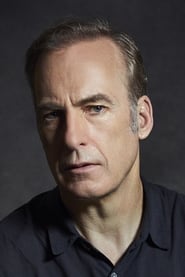
Ask Your Own Question
What is the plot?
Walter White, a high school chemistry teacher in Albuquerque, New Mexico, is introduced as a mild-mannered man who is struggling with financial issues. He is diagnosed with terminal lung cancer, which leaves him devastated and concerned about his family's future, particularly his pregnant wife, Skyler, and his teenage son, Walter Jr., who has cerebral palsy. Walter feels a deep sense of inadequacy and fear about leaving his family in debt after his death.
In a desperate attempt to secure his family's financial future, Walter decides to use his chemistry skills to produce and sell methamphetamine. He partners with a former student, Jesse Pinkman, who has experience in the drug trade but lacks the knowledge to produce high-quality meth. Walter's decision to enter the drug world is driven by a mix of desperation and a desire to reclaim his sense of power and control over his life.
Walter and Jesse begin their operation by cooking meth in an RV in the desert. Their first cook is tense; Walter demonstrates his expertise by explaining the chemical processes involved. They produce a batch of blue meth, which is of exceptionally high quality. However, their initial success is overshadowed by complications when they encounter two drug dealers, Krazy-8 and Emilio, who threaten them. Walter and Jesse are forced to confront them, leading to a violent altercation.
In a pivotal moment, Walter uses his knowledge of chemistry to create a toxic gas, which he deploys to incapacitate Emilio and Krazy-8. Walter and Jesse manage to escape, but Walter is left shaken by the violence. They dispose of the bodies in a gruesome manner, showcasing Walter's descent into the criminal world. This marks a significant turning point for Walter, as he begins to embrace his alter ego, "Heisenberg."
As Walter returns to his family life, he struggles to maintain the facade of a normal life while secretly engaging in illegal activities. Skyler becomes suspicious of Walter's behavior, especially when he starts to act secretively and lies about his whereabouts. Walter's internal conflict grows as he tries to balance his dual life, feeling both exhilarated by his newfound power and guilty about the lies he tells his family.
Meanwhile, Jesse faces his own challenges as he tries to sell the meth they produce. He struggles with his own insecurities and the consequences of his actions. He attempts to reconnect with his former girlfriend, Jane, but his drug use complicates their relationship. Jesse's character is portrayed as someone who is caught between wanting to escape his past and being drawn back into the drug world.
Walter's brother-in-law, Hank Schrader, is a DEA agent who is unknowingly pursuing the very drug operation Walter is running. Hank's investigations create a sense of tension and danger for Walter, as he must navigate the risks of being discovered. Hank's character is portrayed as brash and confident, contrasting with Walter's more reserved demeanor.
As the season progresses, Walter's relationship with Skyler becomes increasingly strained. Skyler is concerned about Walter's health and begins to suspect that he is hiding something. Walter's lies become more elaborate, and he struggles to maintain his cover. The emotional toll of his double life begins to weigh heavily on him, leading to moments of frustration and anger.
In the final episodes of the season, Walter and Jesse's operation begins to attract attention from rival drug dealers. They face threats from Tuco Salamanca, a volatile and unpredictable drug lord. Walter's decision to confront Tuco marks a significant escalation in his criminal activities. He realizes that to protect himself and his operation, he must become more ruthless.
The season culminates in a tense confrontation with Tuco, where Walter's transformation into Heisenberg becomes fully realized. He uses his intelligence and cunning to outmaneuver Tuco, showcasing his willingness to embrace violence and intimidation. This moment solidifies Walter's commitment to his new life, setting the stage for the conflicts and challenges that will arise in subsequent seasons.
Throughout the season, the themes of morality, family, and the consequences of choices are explored as Walter's journey unfolds. His descent into the criminal underworld is marked by a series of pivotal decisions that shape his character and the lives of those around him. The season ends with a sense of foreboding, as Walter fully embraces his new identity, leaving viewers eager to see how his story will continue.
What is the ending?
At the end of Season 1 of Breaking Bad, Walter White, a high school chemistry teacher turned methamphetamine manufacturer, finds himself deeply entrenched in the drug trade. After a series of escalating events, he and his former student, Jesse Pinkman, are forced to confront the consequences of their actions. The season concludes with Walter's wife, Skyler, becoming suspicious of his behavior, and Walter's brother-in-law, Hank, a DEA agent, unknowingly closing in on him. The season ends with a sense of tension and uncertainty, setting the stage for the conflicts to come.
As the final episode of Season 1 unfolds, we see Walter White grappling with the duality of his life. He is a man who has turned to cooking methamphetamine to secure his family's financial future after being diagnosed with terminal lung cancer. The episode opens with Walter in his car, reflecting on the choices he has made. The weight of his decisions hangs heavily on him, and he is increasingly aware of the moral implications of his actions.
In a pivotal scene, Walter and Jesse Pinkman are in the midst of a drug deal gone wrong. They are confronted by Krazy-8, a drug dealer they had previously captured. Tension fills the air as Walter struggles with the decision of what to do with Krazy-8. The internal conflict is palpable; Walter is torn between his desire to protect his family and the violent world he has entered. Ultimately, Walter makes a fateful decision, leading to a violent confrontation that solidifies his transformation into a more ruthless character.
Meanwhile, Skyler White, Walter's wife, is becoming increasingly suspicious of Walter's erratic behavior. She notices his late nights and secretive phone calls, which only deepen her concern. Skyler's emotional turmoil is evident as she tries to piece together the truth about her husband's actions. Her love for Walter is evident, but so is her growing fear of what he might be hiding.
As the episode progresses, we see Hank Schrader, Walter's brother-in-law and a DEA agent, working diligently to uncover the identity of the mysterious meth manufacturer known as "Heisenberg." Hank's determination adds another layer of tension, as he is unknowingly hunting down Walter. The audience is left with a sense of impending doom, knowing that the truth is inching closer to the surface.
The season culminates in a dramatic confrontation between Walter and Jesse, where they must face the consequences of their choices. Walter's transformation is complete; he is no longer the mild-mannered teacher but a man willing to do whatever it takes to protect his interests. Jesse, on the other hand, is caught in the crossfire, struggling with his own demons and the impact of their actions on his life.
The final moments of the season leave viewers with a cliffhanger, as Walter's world begins to unravel. Skyler's suspicions grow, Hank's investigation intensifies, and Walter's moral descent becomes undeniable. The season ends with a sense of foreboding, as the characters are left to confront the fallout of their choices, setting the stage for the conflicts and developments that will unfold in the subsequent seasons.
Is there a post-credit scene?
In "Breaking Bad" Season 1, there is no post-credit scene. The episodes conclude without any additional scenes or content after the credits roll. The focus remains on the main narrative and character development throughout the season, particularly highlighting Walter White's transformation from a mild-mannered high school chemistry teacher to a burgeoning figure in the drug trade. Each episode ends with a sense of tension and anticipation for the next chapter in Walter's journey, but there are no extra scenes to extend the story beyond the episode's conclusion.
What motivates Walter White to start cooking methamphetamine?
Walter White, a high school chemistry teacher, is motivated to start cooking methamphetamine after being diagnosed with terminal lung cancer. Faced with the reality of his impending death and the desire to secure his family's financial future, he feels desperate and powerless. This diagnosis ignites a transformation in him, pushing him to take drastic measures to provide for his wife, Skyler, and his son, Walter Jr.
How does Walter's relationship with Jesse Pinkman evolve throughout Season 1?
Initially, Walter sees Jesse Pinkman, his former student, as a means to an end--someone who can help him enter the drug trade. Their relationship starts off as one of mutual benefit, but as the season progresses, Walter's manipulative nature begins to surface. He often belittles Jesse, who struggles with his own insecurities and addiction. Despite this, Jesse shows loyalty to Walter, creating a complex dynamic filled with tension and conflict.
What role does Skyler White play in Walter's life during Season 1?
Skyler White, Walter's wife, is portrayed as a loving but increasingly suspicious partner. Throughout Season 1, she is unaware of Walter's criminal activities and is focused on supporting him through his cancer diagnosis. However, as she begins to notice Walter's erratic behavior and secretive actions, her concern grows. Skyler's emotional state fluctuates between worry for Walter's health and frustration over his lack of transparency, highlighting the strain on their marriage.
What are the consequences of Walter's decision to kill Krazy-8?
Walter's decision to kill Krazy-8, a drug dealer he initially captures, marks a significant turning point in his transformation into a criminal. This act of violence weighs heavily on Walter's conscience, leading to feelings of guilt and fear. It solidifies his commitment to the drug trade, but also introduces a darker side to his character. The consequences ripple through his life, affecting his relationships and pushing him further into the criminal underworld.
How does the character of Hank Schrader impact the story in Season 1?
Hank Schrader, Walter's brother-in-law and a DEA agent, serves as a significant counterpoint to Walter's secret life. His presence adds tension to the narrative, as he is unknowingly pursuing the very drug operation that Walter is running. Hank's determination to combat drug crime creates a sense of urgency and danger for Walter, who must navigate his double life while keeping his family safe from Hank's investigations.
Is this family friendly?
"Breaking Bad" Season 1 is not considered family-friendly due to its mature themes and content. Here are some potentially objectionable or upsetting aspects that may affect children or sensitive viewers:
-
Drug Use: The show revolves around the illegal drug trade, featuring scenes of drug manufacturing and use, which may be disturbing or inappropriate for younger audiences.
-
Violence: There are instances of violence, including confrontations and threats that can be intense and graphic, contributing to a tense atmosphere.
-
Language: The dialogue includes strong language and profanity, which may not be suitable for children.
-
Moral Ambiguity: The characters often engage in morally questionable behavior, which can be unsettling as it challenges traditional notions of right and wrong.
-
Health Issues: The protagonist, Walter White, is diagnosed with terminal cancer, leading to emotional and distressing scenes related to illness and mortality.
-
Family Strain: The show explores the impact of Walter's choices on his family, including emotional distress and conflict, which may be upsetting for some viewers.
These elements contribute to the show's overall mature rating and may not be appropriate for younger audiences or those sensitive to such themes.



















